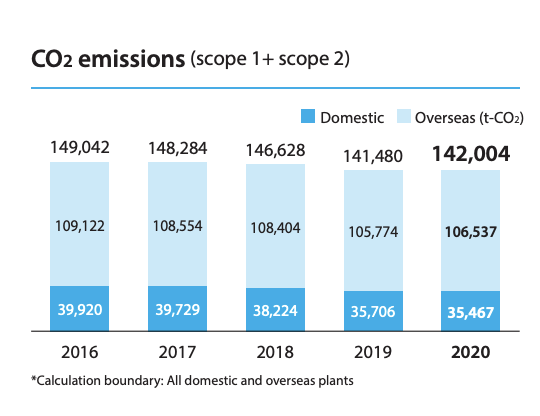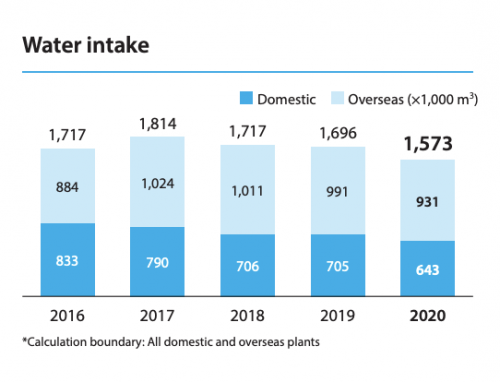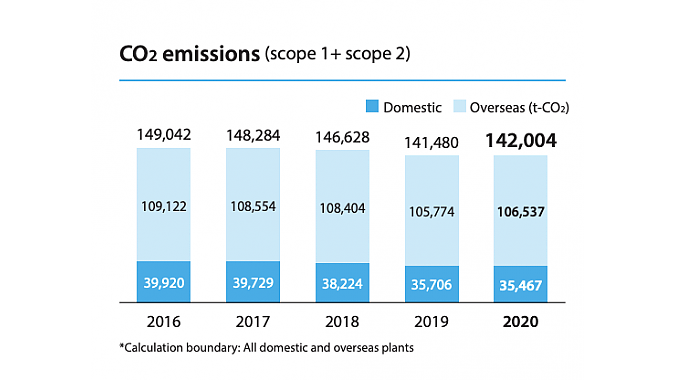OSAKA, Japan (BRAIN) — Shimano Inc. cut water use at its factories by about 7% last year, continuing a trend that began at least four years ago. The company also announced an action plan to reduce the use of disposable plastic in containers and packaging materials for its products.
The company’s CO2 emissions, however, were nearly flat in 2020 compared to the prior year, according to a report it released Tuesday on its environmental, social and corporate governance (ESG) initiatives.
The report said that water intake at all its plants in Japan and elsewhere last year totaled 1.57 million cubic meters, down from 1.69 million cubic meters in 2019 and down from a five-year high of 1.81 million cubic meters in 2017.
Shimano’s carbon dioxide emissions at all its plants was 142,000 tons, up 0.4% from its 2019 total. Emissions are down 4.7% from 2016 levels, however, even while Shimano’s revenues have grown 17% since 2016.
The report said Shimano is moving away from plastic for packaging.
“As we search for alternative packaging materials, we continue to study materials that can be provided at a suitable cost that will allow us to supply products without sacrificing their value while communicating our message to customers. We believe that the first step is to do what we can in the effort to realize a sustainable society while earning customers’ support and empathy.”
Shimano’s social initiatives in 2020 included enacting a management system based on requirements in ISO 45001. It said it planned to earn certification under that standard this year. ISO 45001 is related to workplace safety and working conditions. Shimano has more than 12,000 employees at its consolidated operations worldwide.
On the governance side, Shimano said it trains its employees in the “Fundamental Principles of Team Shimano.”
“This does not end with an adherence to laws and regulations, but also extends to acting in accordance with common and good sense, ethics and manners, as well as consideration and kindness,” the report said.
It said that in Japan, 96% of new employees, new managers and existing managers participated in e-learning training on 12 topics related to the principles. Globally, 91% of managers have participated in training related to two topics: raising awareness of information security and preventing discrimination and harassment.




